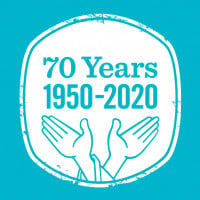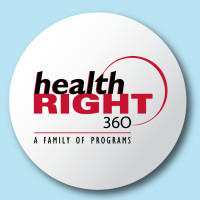Curry Senior Center
Drug Rehab Center in San Francisco, California
The Curry Senior Center offers comprehensive treatment programs for alcoholism and opioid addiction in San Francisco, including aftercare support and outpatient treatment with a team of highly trained professionals.
About Curry Senior Center in California
Curry Senior Center, located in San Francisco, California, is an alcoholism and opioid addiction treatment facility that offers services for individuals seeking sobriety. With a focus on helping seniors struggling with addiction, this center provides a welcoming and supportive environment for those looking to make positive changes in their lives. Curry Senior Center offers various levels of care, including outpatient treatment, to accommodate different needs and preferences. Their dedicated team of professionals is committed to providing personalized care and support to individuals on their journey towards recovery.
At Curry Senior Center, a range of services and treatment methods are available to address alcoholism and opioid addiction. They offer aftercare support, recognizing that the journey to recovery continues even after initial treatment. This includes assistance with transitioning back into society and maintaining sobriety in the long term. In addition, their outpatient treatment programs provide ongoing therapy and counseling to address the root causes of addiction and develop coping mechanisms. With a person-centered approach, Curry Senior Center strives to meet the unique needs of each individual and provide a comprehensive treatment plan that fosters lasting recovery.
Genders
Ages
Modality
Additional
Conditions and Issues Treated
Opioid addiction treatment should be done in a medically supervised drug rehab. While taking opioids, users will typically use other substances to enhance the effects of opioids or to reduce the adverse effects of opioid use. Opioid addiction treatment will include detoxification and drug rehab counseling to help both the user and their loved ones learn how to live a successful sober lifestyle.
Treatments such as methadone, buprenorphine, and naltrexone are three medications that can help treat opioid addiction. These drugs work on the brain’s pleasure center and reduce cravings and the effects of illicit opioids such as heroin. These drugs can be either given orally or by injection. Individual drug rehab counseling sessions can be helpful to discuss any questions or concerns with the drug treatment program. This counseling will also help the user set goals for when they finish drug rehab.
Opioid addiction recovery is a long process. Many of the changes to the brain caused by opioid use cannot be undone, but with time and the proper treatment, a person can return to normal function. After detox, treatment will include drug rehab counseling and entering a halfway house or sober living community. Aftercare is critical to long-term recovery, as it helps the user avoid relapsing and entering back into drug rehab.
Levels of Care Offered
This center offers a variety of custom treatment tailored to individual recovery. Currently available are Aftercare Support, Outpatient, with additional therapies available as listed below.
“Outpatient treatment is ideal for those who have a lower intensity addiction. It’s also suitable for those with a supportive environment and those on a tight budget.
Outpatient treatment can be considered the lowest intensity level of addiction treatment. It is ideal for early phase addiction or lower intensity addictions. It may involve weekly sessions instead of daily. Peer group support, 12-step programs, and individual counseling may still be used and anti-addiction medication.
Aftercare support is vital to those who have completed a drug or alcohol treatment program. This support comes in individual and family counseling, treatment of psychiatric and other medical conditions, and medications to reduce cravings. It helps recovering addicts adjust to normal day-to-day activities and can last for a year or longer.
The majority of drug and alcohol addicts who receive aftercare treatment do not relapse. It is estimated that without aftercare, the relapse rate will be between 70 to 90 percent for most people. Aftercare is the final stage in addiction recovery, but it will also help maintain sobriety if relapse does occur.
Therapies & Programs
No single treatment works for all addicts; therefore, the goal of treatment and therapy should be to find what works best for each individual. Some people requiring addiction treatment may only need a few weeks of inpatient care. Others will require long-term residential care. Tolerance and withdrawal levels vary from person to person and thus affect the intensity of the treatment needed.
If an individualized approach to treatment and therapy is not offered, addicts may fail to reap benefits from their efforts. Professionals must customize plans according to their patient’s needs, limitations, and strengths. The goal of all forms of addiction treatment should be for addicts to find healthy ways to cope with their addiction and its underlying causes.
Group therapy is held in a safe, controlled setting where patients can feel comfortable sharing their struggles and gaining perspective through shared conversations. It takes place in a group rather than one on one to prevent feelings of isolation or being unique in their situation while creating an environment for addicts at Curry Senior Center to develop fellowship, accountability, and support. Group therapy is an important tool in recovery that prevents cravings that prompt a return to active addiction.
Cognitive-behavioral therapy is a talking-based method that helps people struggling with addiction replace destructive behaviors with healthier ones. CBT also helps them identify the underlying thoughts and beliefs that cause these behaviors in the first place and ways to control those thoughts and feelings. It can be administered as a holistic therapy or as part of combination therapy and—as opposed to turning to drugs and alcohol—helps addicts learn how to respond to negative thoughts instead.
Payment Options Accepted
For specific insurance or payment methods please contact us.
Additional Details
Specifics, location, and helpful extra information.
San Francisco, California 94102 Phone Number(415) 885-2274 Meta DetailsUpdated November 25, 2023
Staff Verified
Curry Senior Center Patient Reviews
There are no reviews yet. Be the first one to write one.
San Francisco, California Addiction Information
More than 3 million of California's citizens are addicted to illegal drugs. Almost 800,000 people use hard drugs, almost 5 million use marijuana, and another 2.1 million abuse alcohol every year. Other substance abuse issues such as binge drinking and teen drug use are also common. Many illegal drugs such as cocaine, heroin, methamphetamine, and marijuana are smuggled into the state from Mexico.
There were 1,93 overdose deaths in San Francisco in 2016. This is a significant increase from the 1,11 overdose deaths reported in 2015. 16% of San Francisco residents aged 12 and older reported using an illicit drug. Drug abuse and addiction cost San Francisco an estimated $5 billion yearly. San Francisco's drug treatment facilities are designed to meet each patient's unique needs, providing the support and resources necessary for a successful recovery.
Treatment in Nearby Cities
- Laguna Beach, CA (391.9 mi.)
- Northridge, CA (327.6 mi.)
- Reseda, CA (329.3 mi.)
- Rancho Mirage, CA (437.6 mi.)
- South San Francisco, CA (8.9 mi.)
Centers near Curry Senior Center
The facility name, logo and brand are the property and registered trademarks of Curry Senior Center, and are being used for identification and informational purposes only. Use of these names, logos and brands shall not imply endorsement. RehabNow.org is not affiliated with or sponsored by Curry Senior Center.


